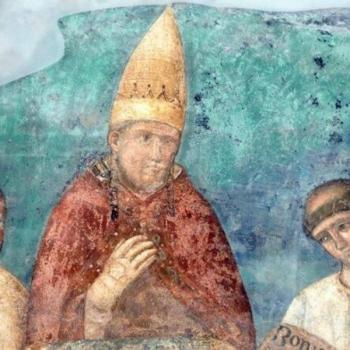Much has been written and said throughout the centuries about the faith of Abraham, our father in faith.
Yet I sometimes think we don’t talk enough about Abraham. Out of all the people in the world, God chose and called Abraham from the darkness and made a promise to him that is still valid today about 4,000 years later: God promised Abraham that he would have descendants as numerous as the stars in the sky and as countless as the sands on the seashore.
Saint Paul praises the faith of Abraham in today’s second reading and he also does extensively in his letter to the Romans. Abraham believed in God and God’s promise against all odds, he believed despite the fact he was old and his wife was sterile. He believed in God and his promise despite the fact God asked him to sacrifice his only son, Isaac.
What a faith and what an example of faith in God for us. This is why Abraham is our father in faith. We should be proud of having him as our father in faith and strive to imitate his firm faith.
As Saint Paul wrote, faith is the realization of what is hoped for and evidence of things not seen. Abraham hoped to have descendants as numerous as the stars in the sky because God promised him so, and it came to be. What he hoped for was realized. Faith is the realization of what is hoped for. Abraham also found evidence in God’s promise that he would have descendants as countless as the sands on the seashore, even though he could not see them. Faith is evidence of things not seen.
Faith is believing without seeing. Faith is true knowledge without having the whole picture. If we saw the whole picture, it would no longer require faith.
In the way Abraham was called by God, was given a promise, and believed, Jesus in today’s Gospel calls us, gives us a promise and invites us to believe.
What is this promise?
“Blessed are those servants whom the master finds vigilant on his arrival. The master will gird himself, have them recline at table, and proceed to wait on them. The master will put the servant in charge of all his property.”
Jesus also tells us that those who are not vigilant and are caught unprepared when the master returns will be beaten severely and be assigned a place with the unfaithful.
Jesus promises us eternal life with him if we are faithful to him and vigilant. This is his promise to us. Do we truly believe this? Is our faith firm like Abraham’s?
Nobody knows the day nor the hour of their death. But this should not make us afraid if our faith is firm. Heaven is the goal of our faith: heaven is the realization of what we hope for. We hope for eternal life and know it will become a reality if we remain faithful. We trust in Jesus’ promise even though we have not seen heaven, we walk by faith and not by sight.
Jesus also warns us that if we are not vigilant and become distracted, not fulfilling our duties, we will be punished. Jesus mentions eternal punishment and the eternal fires several times in Scripture. The modern notion that hell does not actually exist is probably the greatest trick Satan has ever played on mankind. At the end of time, divine justice always prevails and those who have done good will be rewarded and those who have done evil will be punished.
Returning to Paul’s words, faith is the realization of what is hoped for and evidence of things not seen.
We hope for heaven. We have not seen heaven. Yet we know Jesus has promised us heaven and we know that Jesus’ words are true.
Christ is our hope, our only certain hope, because we know his words are true and He will keep his promise.
As Abraham believed in God’s promise and remained faithful despite all odds, let us embrace Jesus’ promise by remaining faithful to him, trusting that He will reward us with eternal life and put us in charge of his household.












